Prepare for a Career at the Nexus of Design, Technology and Innovation
St. Edward’s is one of a handful of universities offering a bachelor’s degree in User Experience Design. Gain the creative, technical and communication skills to enter a career in this fast-growing industry.
User experience design, often referred to as UX, seeks to understand how people search for information and interact with digital tools. With that understanding, UX professionals can design more intuitive, easy-to-use products — both digital products, like apps, websites and software, and other processes and systems. This ever-expanding field of technology and digital platforms provides great opportunities for UX designers to research, experiment and innovate.
Why earn your User Experience Design degree at St. Edward’s?
Our UX program was developed with significant input from partners in Austin’s thriving tech industry and provides the specific training employers want in their new hires. Wherever your career path takes you, the advantages of your St. Edward’s education will prepare you to succeed. You’ll find opportunities in and outside the classroom to learn, give back and achieve your goals. And your mentors will support you every step of the way.
Build relationships with your professors
Learn in small classes taught by award-winning professors with years of real-world expertise. They’ll get to know you, help you identify and focus on your goals, and provide guidance and insight during and after your college years. They’ll leverage their experience — and connections — to help you build your network.
Boost your résumé and credentials
Extend your learning into the professional world through internships in Austin or beyond. You’ll gain valuable on-the-job training, industry insights and networking opportunities. Your UX professors will mentor you through the process of landing an internship, whether at a nonprofit, startup or multinational corporation.
Join a vibrant, like-minded community
Connect with peers who share your artistic and technical mindset and enjoy working in teams to build new digital products that improve people’s lives. Get involved with student organizations, like the AI Club and Computer Science Club, that support your interests. Attend networking events and workshops, and hear from guest speakers.

Reap the Rewards of Austin
Austin is one of the fastest-growing cities and technology hubs in the U.S. and home to nearly 100 Fortune 500 firms. Our Austin location, partnerships and connections allow you to immerse yourself in a dynamic business environment where internships and careers in UX design are in high demand.
Explore More Details About the BA in User Experience Design
A Flexible Degree Program
The User Experience Design (UX) program is open to all students. Courses are taught through a blend of in-person and online formats to allow for maximum schedule flexibility. Our program is structured to help you thrive, no matter your unique academic background or career aspirations.
Traditional undergraduate students can easily major in User Experience Design (UX) with a double-major, minor or double-minor in a related or complementary field such as Computer Science, Digital Media Management, Entrepreneurship, Graphic Design, Psychology or Writing and Rhetoric.
Transfer students can accelerate their path to graduation with a BA in UX Design. With an associate’s degree, you can merge your prior accomplishments with our comprehensive UX curriculum to graduate in two years, even if you’ve never taken a UX class. If you’ve completed the Texas Common Core, you’ll be able to finish in two-and-a-half or three years. You could also consider adding a related minor like Digital Storytelling and Content Creation or Digital Marketing
Degree Plan
Major Requirements: The BA in User Experience Design requires 36 hours of User Experience Design major courses focusing on areas such as UX foundations, ethical research, digital product design, front-end development and design for social impact.
General Education Requirements: The degree requires approximately 40 hours of general education courses which students complete over four years in addition to their major courses and electives.
View and download the full degree plan for the User Experience Design major (PDF).
A few examples of courses students take in the major:
- Interactive Technology – Focuses on the creation and delivery of digital content such as film, music and games, and provides a survey of technologies such as mp3, DVD, portable devices, broadband networks and wireless systems. The course also introduces tools and techniques to develop an Internet site.
- UX Methods – Examines the methods, processes, and tools used in UX Design. You’ll explore how to approach, identify, and address problems. Special focus will be given to studying users, aka people, and the systems that shape their experiences.
- Professional Practices – You’ll explore career options available within creative disciplines, develop a portfolio of your work, and build basic career management skills. A portfolio review and introduction of strategies for success as a creative professional allow you to begin planning for graduation and beyond.
Many of the UX courses are taught online, immersing you in the digital spaces for which you’ll be designing. You’ll also get comfortable traversing the dynamic digital landscape where UX professionals work virtually with teams, clients and customers in town or around the globe.
As a User Experience Design (UX) major, you’ll be immersed in hands-on projects, collaborative problem-solving, thoughtful observation and digital innovation both in and outside of the classroom. And, like all majors at St. Edward’s, the UX major will teach you to consider how diverse social identities influence your work, as people’s cultural backgrounds and physical abilities shape their expectations for the user experience.
Experiential Education
With every UX project, you’ll get the chance to learn by doing. You might create an educational website or VR tour, a productivity or food ordering app prototype or a proposal for an interactive museum exhibit. The UX classes you take will build your professional preparedness:
- UX Studios (Digital Spaces and Hybrid Modalities) allows you to improve a user-experience scenario on campus. You’ll partner with other departments and offices across the university on UX-related initiatives and see your contributions used.
- UX for Social Good invites you to apply UX processes to address a social issue. As part of a team, you’ll research an issue, identify a community need and formulate a user-focused solution.
- UX Senior Studio challenges you to apply your skills and knowledge to collaboratively design a minimum viable product (MVP) for an on-campus, community or corporate partner.
Student Organizations & Programming
As a UX major at St. Edward's, you’ll have an array of opportunities for professional growth, creativity and community building. Some student favorites are:
- Women in Technology (WiT) focuses on empowering women-identifying students in technology fields. WiT is pivotal in building a supportive community and offering resources for professional advancement, including networking events, workshops, and guest speaker sessions.
- Innovation Lab, sponsored by the Munday Library, attracts tinkerers who enjoy working on projects involving origami, sewing, LEDs and simple circuits, projection mapping and creating art through programming.
- AI Club aims to demystify artificial intelligence for students. The club offers resources, workshops and discussions on AI developments that prepare students to leverage AI in their careers and personal projects.
- Command G, the graphic design group, enhances students’ design skills through studio tours, museum visits, lecture series, and screenprinting and risograph workshops.
- Video Game Association hosts game nights — with a mix of console games, PC games, MTG, D&D and handheld games — as well as LAN parties and tournaments.
- Topper Studios is the digital media club. Members are involved in creating podcasts, YouTube channels, short films, music videos and comedy sketches, and helping their fellow students produce digital content. Students in Topper Studios also frequently make promotional videos for other clubs at St. Edward’s.
- The Computer Science Club helps students build their skills through events like Capture the Flag, a cybersecurity-focused programming competition.
- The St. Edward’s Maker Club attracts tinkerers and programmers who have worked on projects involving 3-D printing, soldering, programming LED strips, and creating art through programming.
- The Digital Media Center in the Munday Library is a resource for creating content and learning new skills. Here, you can produce and edit videos, podcasts and visual design projects with the help of your fellow students. The lab is equipped with top-of-the-line computers running the latest software including the Adobe Creative Suite. It also has a group editing/podcasting room, a green screen room and a “whisper room” used for voiceovers. If you are skilled at software, hardware repair, graphic design or video editing, you can apply to work in the lab as a digital media specialist.
Internships
Your UX faculty will mentor you through finding an internship opportunity, whether at a nonprofit, startup, agency or multinational corporation. An internship will extend your learning into the professional world, bolster your résumé and provide valuable industry insights and networking opportunities. Recent UX students have interned with:
- Royale, a creative agency known for its innovative approach to digital experiences
- Council on Foreign Relations, a nonpartisan organization influencing dialogue on global issues
- The Museum of Human Achievement, an organization pursuing access, inclusivity and affordability for artists
A degree in User Experience (UX) Design opens doors to a wide range of in-demand jobs. Here's a sample of positions employers look for, plus additional majors and minors to consider that enhance your degree.
- UX Designers focus on improving the usability, accessibility and delight a person encounters when using a digital product.
- UX Researchers specialize in understanding user behaviors, needs and motivations through observation techniques, task analysis and other research methodologies. (Consider a double major or minor in Psychology.)
- Interaction Designers create engaging interfaces that enable users to achieve their objectives in the best way possible.
- Information Architects organize information and content in a way that users can easily navigate and understand.
- Product Managers act as the bridge between the stakeholders and help define the direction and features of a digital product. (Consider a double major in Digital Media Management.)
- UI Designers or Product Designers ensure the digital product is optimally functional and aesthetically pleasing. (Consider a double major or minor in Graphic Design.)
- Content Strategists align the communication style and messaging with user needs and business goals. (Consider a double major or minor in Writing and Rhetoric.)
- Front-End Designers develop highly interactive and visually appealing websites and mobile apps. Coding knowledge is beneficial. (Consider a minor in Computer Science or the Coding for Non-Coders certificate.)
A minor in User Experience Design can equip you with valuable creative and technical skills that benefit any number of other professional endeavors. As a minor, you must take the following courses, totaling 18 hours:
Required Courses:
- Intro to User Experience
- UX Methods
- Interactive Technology
- UX Studio: Digital Spaces
- UX Studio: Hybrid Modalities
- One of the following electives:
- UX for Social Good
- Methods of Digital Production
- Topics in UX
Are you a current student? Contact your advisor for next steps in declaring your major or minor.
At St. Edward’s, our faculty are outstanding scholars, thought leaders, teachers and mentors who bring energy and enthusiasm to our vibrant learning community. They take pride in getting to know you, helping you achieve your goals and celebrating your successes.
View a list of our faculty members and their contact information on the Department of Visual Studies webpage.

Earn Two Degrees in Five Years
With our Accelerated Graduate Pathways, you can complete your BA in User Experience Design and master’s degree in Digital Marketing and Analytics in as little as five years, saving time and money. See details and requirements.
Success coaches and academic advisors guide you through undergraduate and graduate courses to maximize benefits.
